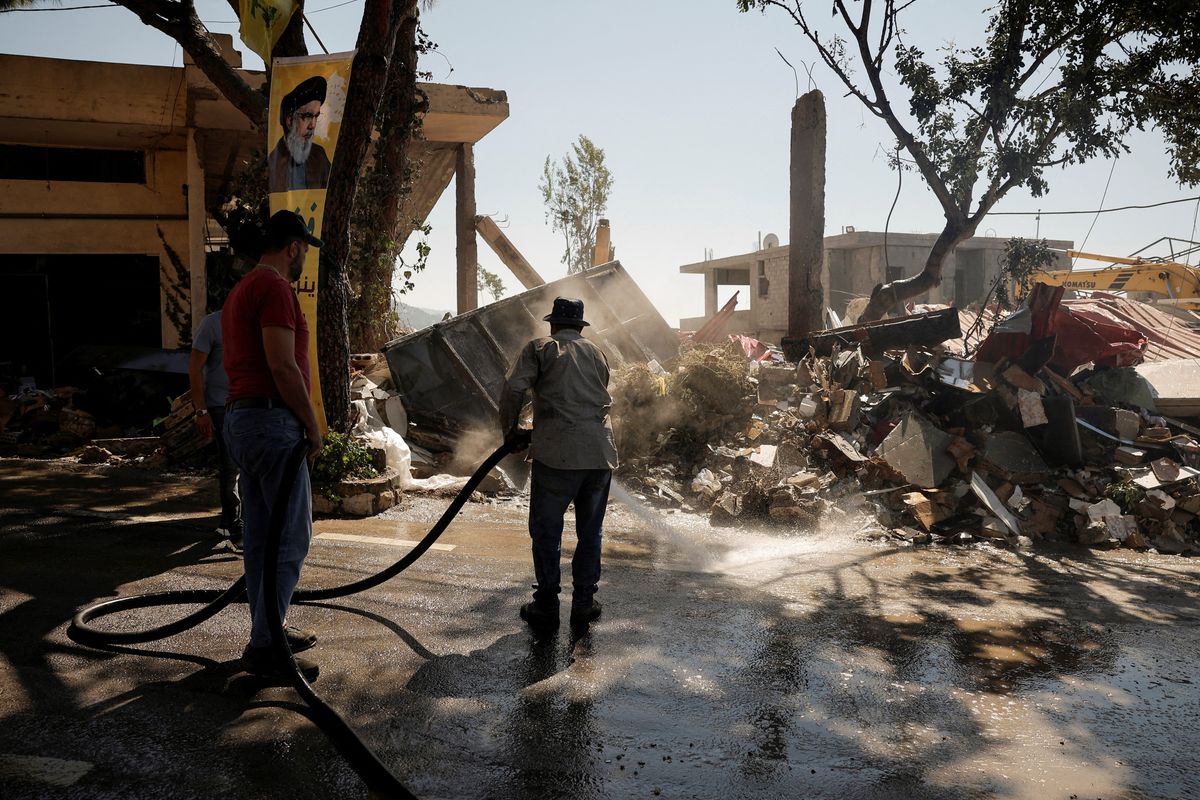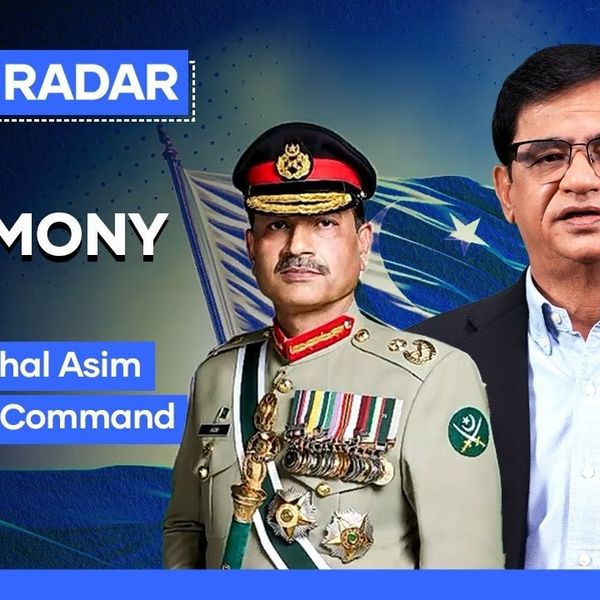Lebanon renews calls for ceasefire as Israel targets Beirut suburbs
Deaths overnight and on Thursday brought the toll to 28, with over 600 reported since Monday, according to Lebanon's health ministry.
Dubai Desk
The Dubai Desk reports on major developments across the UAE, covering news, culture, business, and social trends shaping the region.

Aftermath of an Israeli strike on residential buildings in the village of Maaysrah, north of Beirut, Lebanon.
Reuters
Lebanese Foreign Minister Abdallah Bouhabib addressed the United Nations General Assembly on Thursday, renewing his call for a ceasefire between Israel and Hezbollah and warning that Lebanon is facing "a crisis that threatens its very existence.”
Bouhabib emphasized the urgency of international intervention, saying, "The future of our people and our prosperity are in peril and this is a situation that requires international intervention on an urgent basis before the situation spirals out of control with a domino effect, making this crisis impossible to contain."
Israeli airstrikes continued, with a warplane hitting the outskirts of Beirut, killing two and wounding 15, including a woman in critical condition, according to Lebanon's health ministry. This brought the death toll overnight and on Thursday to 28, with over 600 casualties reported since Monday.
Israeli Prime Minister Benjamin Netanyahu confirmed that Israeli teams had met with U.S. officials to discuss ceasefire proposals but maintained that military operations would proceed. His remarks followed Israeli Foreign Minister Israel Katz's firm rejection of a ceasefire in northern Israel, where Israeli forces have launched their heaviest bombardment of Hezbollah in decades.
After Netanyahu departed for New York to attend the United Nations General Assembly, his office released a statement reiterating that Israeli troops were ordered to continue their operations in Lebanon "with full force."
U.S. Secretary of State Antony Blinken urged Israel on Thursday to consider that further escalation involving Lebanon would only complicate efforts for civilians to return home on both sides of the border. However, Israel has rejected global ceasefire appeals, including from its key ally, the United States, and has pressed on with strikes that have killed hundreds in Lebanon, raising concerns of a broader regional war.
Despite Israel's stance, the U.S. and France continue to push for a 21-day truce, with negotiations ongoing, including discussions on the sidelines of the United Nations meetings. Critics argue that Washington has not used its leverage effectively to pressure Israel into agreeing to a ceasefire.
As Israeli airstrikes continued in southern Lebanon, the Lebanese health ministry reported 28 deaths on Thursday alone, with more than 600 casualties since the beginning of the week. Despite global pressure, including from Washington, Israel remains steadfast in its offensive, aiming to neutralize Hezbollah’s military capabilities. The situation has led to mass evacuations on both sides of the border, with thousands of civilians displaced.
Netanyahu's UN speech met with walkouts
Netanyahu vowed to continue Israel's attacks on Iranian-backed fighters in Lebanon in a closely watched United Nations speech on Friday as hopes faded for a ceasefire that could head off an all-out regional war.
In his speech, Netanyahu sought to pin blame for the conflict on Iran, whose delegation was absent for the speech. He said Israel was defending itself against Tehran on seven fronts, including against Hamas in Gaza, Hezbollah in Lebanon and Houthis in Yemen.
"There is no place in Iran that the long arm of Israel cannot reach. And that's true of the entire Middle East. Far from being lambs led to the slaughter, Israel soldiers have fought back with incredible courage," Netanyahu said.
"I have another message for this assembly and for the world outside this hall: We are winning," he said.
The two General Assembly speakers before Netanyahu thumped the lectern as they spoke. Slovenia's Prime Minister Robert Golob demanded: "Mr. Netanyahu, stop this war now."
A significant number of delegates, including those from Iran and Lebanon, walked out as Netanyahu took the podium. Among them was the Turkish delegation, led by Turkey' ’s permanent representative to the U.N., Ambassador Ahmet Yildiz.
The Pakistani delegation also walked out in protest, led by Prime Minister Shehbaz Sharif. In his address prior to the walkout, Sharif condemned Israel’s actions in Gaza, calling it a “genocidal war.”
“Can we remain silent while children lie buried under the rubble of their homes? The blood of Gaza’s children stains the hands not just of the oppressors but also of those complicit in prolonging this cruel conflict,” Sharif said.










Comments
See what people are discussing